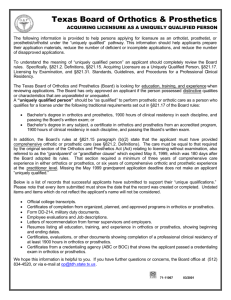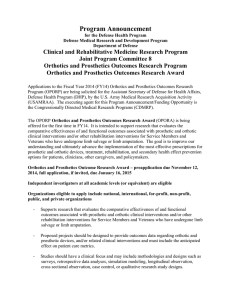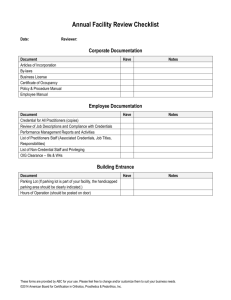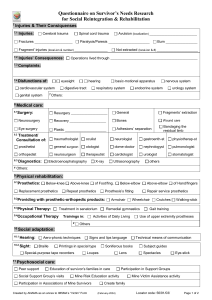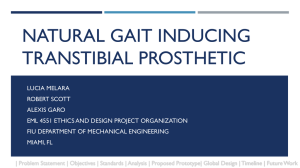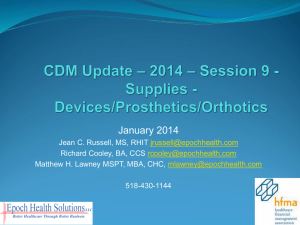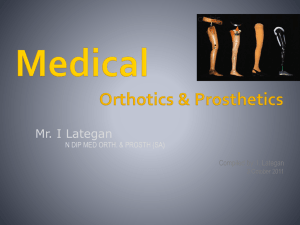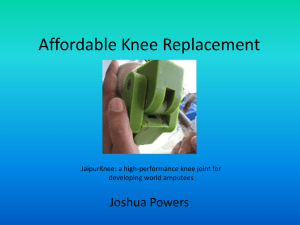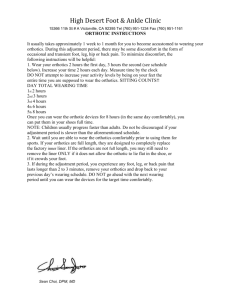The Provision of Orthotic, Prosthetic and Rehabilitation Equipment
advertisement
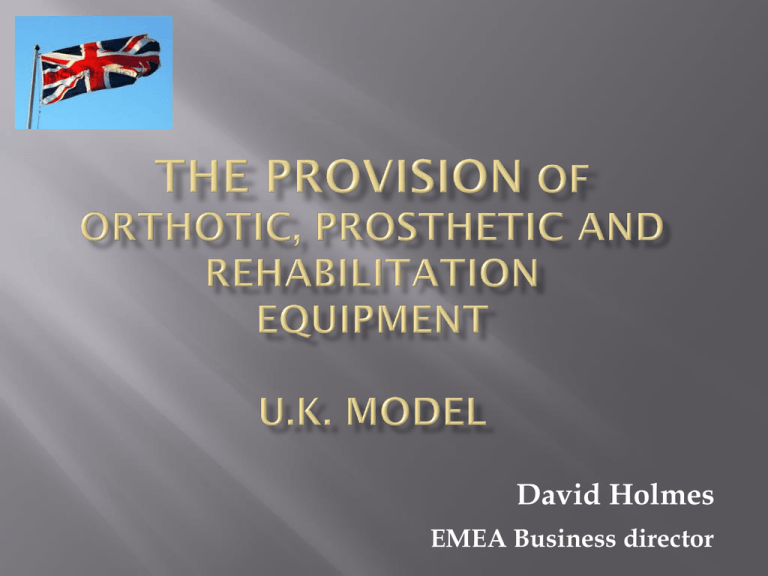
David Holmes EMEA Business director A simplified version of a complex system Family Doctor Shop Pharmacy Nurse Blood X-ray Physio- Hospital tests therapy consultant Very few exist due to improved hospital and private facilities offering better technology and expertise Only sell wheelchairs, walking aids, crutches, seating accessories etc. Only to the private market Orthotics/Prosthetics/Rehabilitation equipment supplied from hospitals or specialist centres. Hospital Consultant Orthotics Prosthetics Physiotherapy University education at O&P colleges 3 Years plus 2 years intern Option of extra year to obtain Masters Degree Central Government National Insurance Patient Contribution Pharmacy medication GBP 7.40 Orthotic devices Hosiery GBP 15.30 Fabric supports GBP 37.90 Prosthetics – standard limbs free Rehabilitation equipment - free Individual hospitals control their own budget for the provision of orthotics, prosthetics and rehabilitation equipment Mainly private companies Competitive tenders (1-5 years) for service and/or products Few government workshops - excluded from tender process Competitive tenders for bulk purchase Individually negotiated prices Hospital Care Home with resident nursing staff Patient’s own home Team decision Equipment installed Visiting nurses (24 hours if necessary) Visiting therapists Transport for hospital visits National Institute for Clinical Excellence N.I.C.E. Cost effectiveness Product testing Bio-engineers Doctors Therapists Orthotists/Prosthetists Function Material testing Clinical trials Studies Sweden is divided into 20 County Councils each having its own O&P facility 7 owned by County Councils 13serviced by private companies selected by tenders (3-5 years) Facilities situated mainly in major hospitals Same system as U.K. Mostly qualified physicians Family doctors Physio. And Occupational Therapists Custom made orthotics and prosthetics funded by Social Security (Taxation) Ready made supports called “self care devices” partly paid by patients (Euros 25-65) Orthopaedic Shoes Patient pays Euros 35-60 children Euros 75-120 adults Chronic patients (rheumatoid arthritis, diabetes, stroke etc) free of charge Amputee patients receive limbs free To return the patient to as near normal function as possible Thank you for your attention
